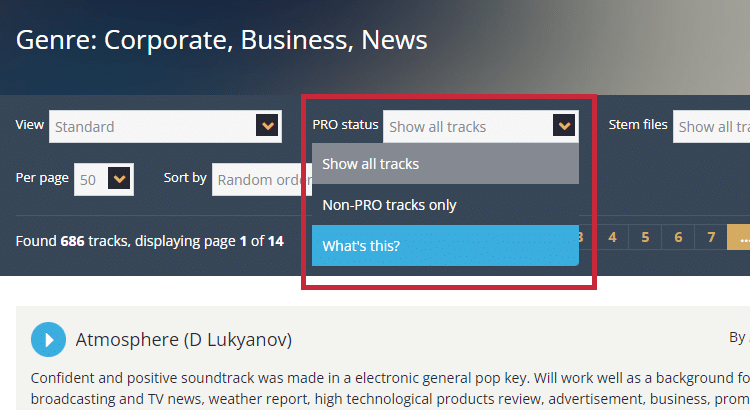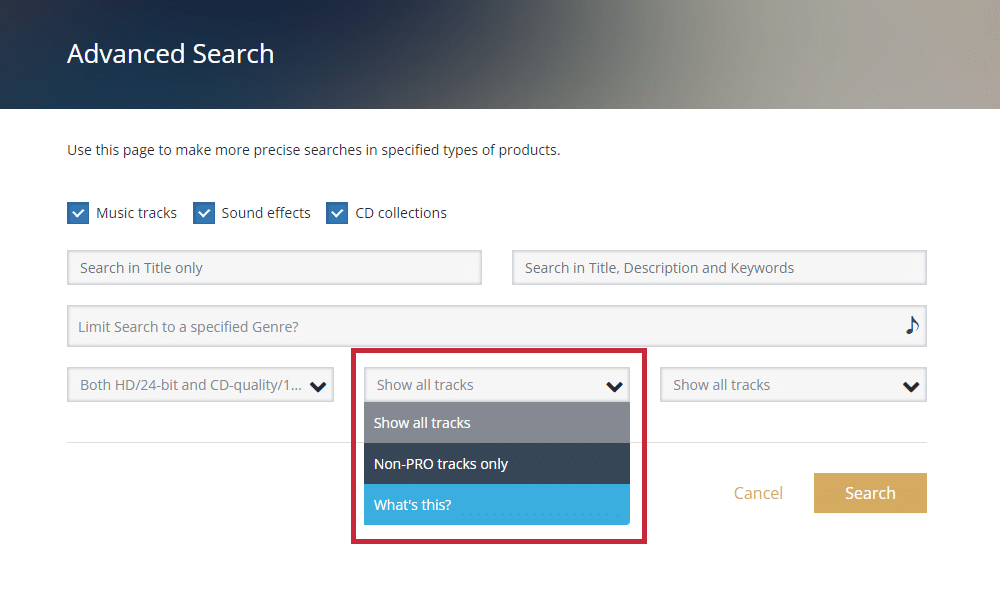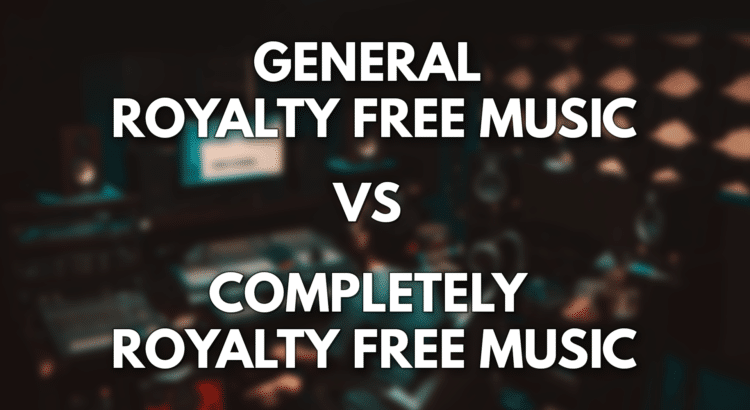We would like to try to explain some of the complexities of music use and royalty free music. We’ve tried to make this as short as we could:
1. General royalty free music (PRO Tracks):
Most music composers and publishers are members of various composers’ rights organizations. These organizations oversee and look after the composers’ works with regards to the manufacturing of physical products that contain their music, and/or with regards to broadcasting and public performance of their music.
Related: What is Royalty Free Music?
When you find music listed as “royalty-free” on the web, be it here at Shockwave-Sound or in other royalty-free music libraries, it usually means that the music is generally considered royalty-free for most uses, but not actually entirely royalty-free in certain circumstances — more precisely, for in-public play and TV- or radio broadcasts.
Many, though not all, music composers are members of a Performing Rights Organization (PRO). These PRO’s look after the composers and publishers’ rights to receive royalties when their music is broadcast or played in public. It means that anybody who broadcasts their music, or plays it in public (for example, at a trade show, or in a sports arena), need to obtain a license from their country’s performance royalty collection society. In most cases, this does not affect you (our customer) in any way, because the broadcasters already have this license and therefore no additional fees are actually payable by anybody.
For example, you buy a track from us by a composer who is a PRO member. You buy the “Sync license” from us at Shockwave-Sound, which gives you the right to put the music into your film, game, app, stage production, podcast, audio book or whatever project you are working on.
A year later, your film ends up getting broadcast on BBC, or perhaps a local TV network, or on YouTube. Now, the composer will receive a small payment for this. This money is however just taken from the already paid, annual license that the broadcaster pays to the performance rights organization. No extra money is payable by anybody. Nobody has incurred any extra expenses, because the license money was already paid by the broadcaster, as a large annual fee.
So, whilst the music is not entirely free of all strings, it is still fair to call it royalty-free because neither the content producer nor the broadcaster (who already has an annual license) has to pay any royalties.
The only time an actual additional expense would come into this situation would be if you decide to broadcast the music yourself, and you don’t already have a broadcasting license. For example, at a concert or at some kind of venue that doesn’t already have a PRO license. Some countries also consider telephone music-on-hold to be a “broadcast” – other countries do not.
As far as trade shows or sports events, here you would expect the venue/hall to already have a license from their country’s performance royalty organization, but you may want to check that.
Wherever you look for “royalty free music”, be it on the internet or in traditional production music libraries, most of the music you’ll find is in this category. The composers are members of a performance rights society, but it is only in very exceptional circumstances that you would have to pay anything because of this, and thus, it would be fair to call their music “general royalty-free”.
Related: Quick explanation of terms relating to music copyrights, music licensing and royalty-free music
2. Completely royalty free music (Non-PRO Tracks/Copyright Free Music):
There are some composers who are not a member of any kind of composers’ society what so ever. They are not members of any performance rights organization, so their music can be freely broadcast and played in public without paying any broadcasting license to any collection society whatsoever. Their music can be said to be “completely royalty free” – also known as “Non PRO music”, “PRS free music”, “GEMA free music”, “Copyright free music” and so on.
If you are going to need music that is entirely Non-PRO, you can choose to Search or Browse only Non-PRO music using our website. When you browse a music genre (by clicking on a genre in the list of music genres/styles on the right-hand side of our site), on top of the result list you can see an option to display “PRO-tracks and Non-PRO tracks” or “Non PRO Tracks Only“. Click “Non PRO tracks only” and your displayed track list will be updated to show only music that is “completely royalty-free”.
Related: PRO-registered vs Non-PRO registered music

If you want to Search by keywords or track titles etc., and you want to display only Non-PRO music, then go to the Advanced Search page, and you’ll be able to see the “PRO and Non-PRO” or “Non PRO tracks only” option there.






